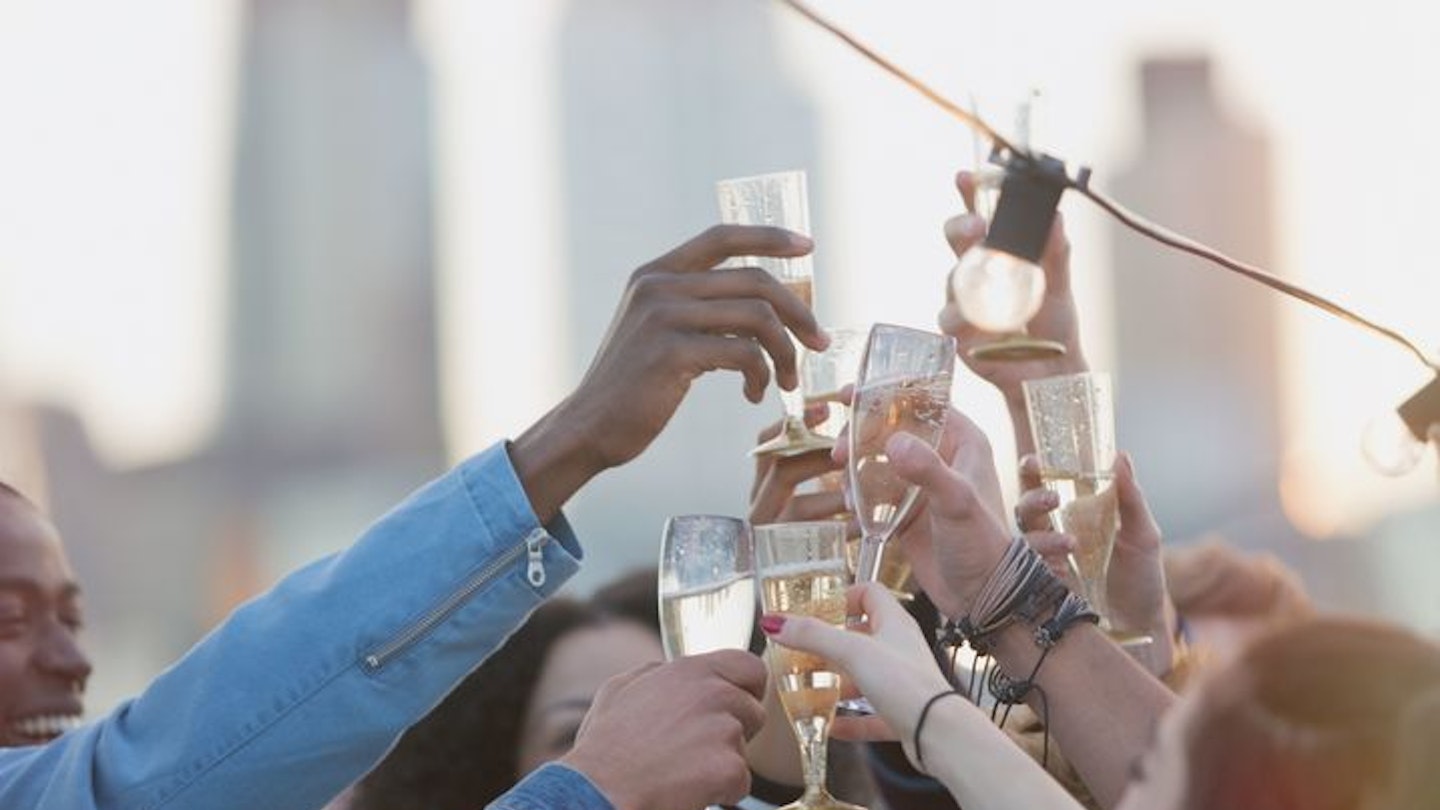It’s a warm Sunday afternoon and I’m on the balcony of London’s Bermondsey Square Hotel, sipping from a champagne flute. I’ve bonded with the woman next to me and we’re sharing drunken anecdotes, like the time she got so wasted the night before an important business trip that she was too terrified to go to sleep in case she missed her flight.
So far, so familiar, except between us we’ve racked up three years of sobriety. Our glasses, and those of everyone in the square below us, are filled with non-alcoholic drinks.
We are among the 2,000-plus people who visited the UK’s first ever Mindful Drinking Festival last weekend. Stalls offered alcohol-free beers and wines, as well as various teas, tinctures and tonics.
The event was organised by Club Soda, a mindful drinking movement with an online community of more than 10,000 members. The group’s founder, Laura Willoughby, describes mindful drinking as an attitude. ‘You become aware of how your body and mind are affected by alcohol and can decide if you’re OK with that. Being mindful about your drinking is all about what is right for you today. You’re in control.’ For some, this means reducing their overall alcohol intake or establishing clearer boundaries around consumption. Alternatively, it may mean giving up drink for a set time, or deciding to become sober indefinitely.
Mindful drinking is a growing trend, with recent data from the Office for National Statistics showing that the proportion of adults who say they drink is at its lowest level on record, with 21% saying they don’t drink at all.
Like many of the festival-goers I spoke to, Rachel, 34, cut back her alcohol consumption for lifestyle reasons, including concern for her overall well-being and a desire to put an end to hangovers. For her, ‘Resisting the temptation to drink has not been an issue, but dealing with people’s negative reactions and feeling excluded from what my friends are doing has been really hard.’
There’s also the strong association of alcohol with relaxation. Of course, there’s no harm in looking forward to a glass of wine at the end of a long day at work, or when the kids are in bed – but what if we can’t remember the last dry evening we had?
Fran from Birmingham realised she had to make a change when her three-year-old asked why she wasn’t buying wine that day. Although she finds sober dating a struggle, she says she’s thrilled with the massive improvement in her mental health now she’s not drinking.
Frances, a high-powered City executive, finds the positives of mindful drinking outweigh the downsides, too. She’s building a new social life based on her love of sport and says, ‘I’m relieved to feel I’m no longer taking massive risks with my job by turning up for crucial meetings with a raging hangover.’
Thirty-somethings Bridget and Erica both recognise that their heavy drinking negatively affected their relationships. While Erica’s marriage sadly ended because of it, Bridget and her partner Maxine are now exploring the world of sobriety together. And Bridget believes mindsets are beginning to change. Crucially, she says, ‘I no longer feel like I’m sitting on the naughty step because I don’t drink.’ Rachel, meanwhile, is finding support – and a new group of like-minded friends – through involvement in Soberistas, another online mindful drinking community.
Looking around the festival at the tables of women laughing boisterously, friends lounging on beanbags and couples discussing which bottles to buy, it seems she’s right. Zero-proof drinks don’t mean that we miss out; they mean that we stay in control.
READ MORE: Drinking Champagne Is Doing More Damage To Your Looks Than You Realise
